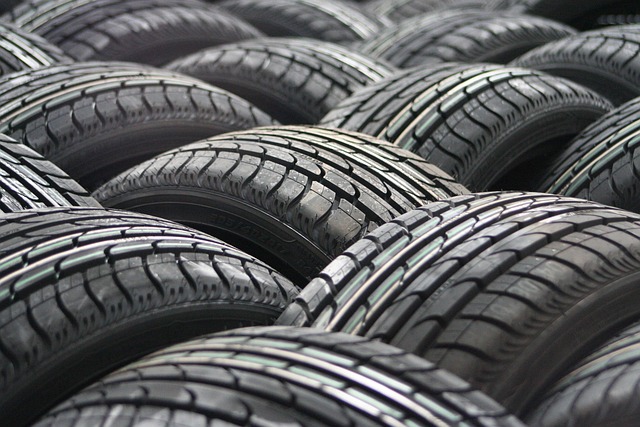Registering a car in California is a straightforward process, but understanding the requirements is key. This guide will walk you through each step, from gathering essential documents to completing the application, ensuring a smooth registration experience. A crucial aspect is verifying your Vehicle Identification Number (VIN) using reliable tools to maintain vehicle integrity and security. With our comprehensive instructions, including tips on choosing an approved agency, you’ll efficiently navigate California’s car registration process, making it hassle-free for both new and existing vehicle owners.
- Understand California Car Registration Requirements
- Gather Necessary Documents for Car Registration
- Verify Vehicle Identification Number (VIN) Accuracy
- Choose an Approved Title and Registration Agency
- Complete and Submit the California Car Registration Application
Understand California Car Registration Requirements

Before registering your car in California, it’s crucial to understand the state’s specific requirements. One key component is ensuring your vehicle has a valid and accurate Vehicle Identification Number (VIN) inspection. This involves verifying the VIN using reliable tools like a mobile VIN verifier or undergoing a formal VIN inspection. California law mandates that all vehicles must meet certain safety and environmental standards before registration.
Having a mobile VIN verifier can simplify this process, allowing you to complete a VIN inspection conveniently and efficiently. Alternatively, you may opt for a traditional VIN inspection at a certified location. Either way, having an accurate and up-to-date VIN is essential for a smooth car registration experience in California.
Gather Necessary Documents for Car Registration

Before you begin the registration process, it’s crucial to gather all the essential documents required by the California Department of Motor Vehicles (DMV). This typically includes your vehicle’s Vehicle Identification Number (VIN), which can be verified through a mobile VIN inspection or by checking the frame, engine, and body parts for matching numbers. Along with the VIN verifier results, you’ll need the title to the vehicle, proof of insurance, a valid driver’s license, and proof of residency in California. If you’re purchasing a used car, you may also require the seller’s signature and a bill of sale.
Additionally, prepare any other relevant documents such as registration renewals or replacement forms, if applicable. Having these prepared will streamline the process and potentially avoid delays at the DMV. Remember to double-check that all information is accurate and up-to-date before submitting your application for car registration in California.
Verify Vehicle Identification Number (VIN) Accuracy

Before registering your vehicle in California, it’s crucial to ensure the Vehicle Identification Number (VIN) is accurate and valid. This unique 17-character code is a critical component during the registration process, as it helps identify specific details about your car, including its make, model, year, and even history of ownership. Accurate VIN information is essential for ensuring your vehicle’s authenticity and security.
A mobile VIN inspection or verification service can be a convenient way to ensure the VIN’s accuracy. These services offer on-demand checks, allowing you to confirm your car’s details quickly and efficiently. With just a few simple steps, you can cross-reference the provided VIN with reliable databases, ensuring it matches the vehicle you intend to register in California.
Choose an Approved Title and Registration Agency

When registering your car in California, choosing an approved title and registration agency is a crucial step. These agencies are licensed by the state to handle vehicle transactions, ensuring that all legal requirements are met. Look for agencies that offer transparent services with competitive pricing. Additionally, consider their convenience factors, such as mobile vin verification or mobile vin inspector services, which allow you to complete the process from the comfort of your home or office.
A reliable agency will provide a thorough vin inspection, using advanced technology to verify your vehicle’s history and ensure it complies with California’s regulations. This includes checking for any outstanding recalls, previous accidents, or title issues. Opting for a mobile vin verifier can save you time and effort by eliminating the need to visit an office, making the registration process more efficient and hassle-free.
Complete and Submit the California Car Registration Application

To register your car in California, the first step is to complete and submit the California Car Registration Application. This form requires essential information about your vehicle, including its make, model, year, and unique Vehicle Identification Number (VIN). The VIN is a critical component of the registration process, as it allows the California Department of Motor Vehicles (DMV) to verify the vehicle’s history and ensure it meets all necessary standards.
When filling out the application, it’s crucial to double-check the accuracy of your details. Additionally, you may want to consider using a mobile VIN verifier or performing a mobile VIN verification to ensure your vehicle is in good standing and doesn’t have any outstanding issues. This step simplifies the registration process by providing instant access to a vehicle’s history through its VIN, making it easier for both owners and DMV officials.
Registering a car in California involves understanding state requirements, gathering essential documents, ensuring VIN accuracy using a reliable VIN verifier, choosing an approved agency, and completing the application. By adhering to these steps and leveraging tools like a VIN verifier, you can ensure a smooth process for your vehicle’s registration.
